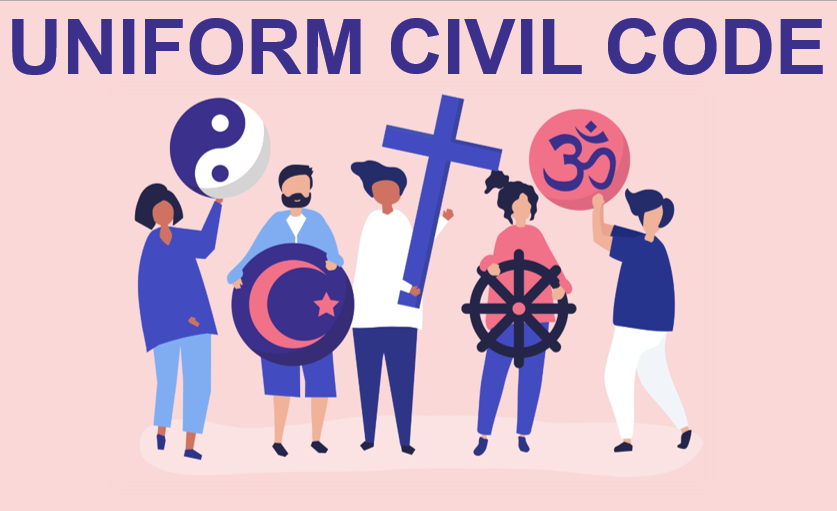Published on: 10th January 2025
Authored by: Roushan Kumar Ojha
Mangalayatan University
Introduction
Marriage is necessary for social as well as personal reasons. It plays a vital role in human life and the continuation of civilization. Companionship makes life pleasant, and marriage lays the foundation for societal growth in a civilized manner. One of the key purposes of marriage is to continue the family lineage. According to Hindu scriptures, life transitions from the Brahmacharya (student) phase to the Grihastha (householder) phase, making marriage an essential Sanskar.
In every civilized society, the state governs the rules and regulations related to marriage without exception. In India, however, there is no unified legal framework governing marriages. Instead, laws cater to safeguarding individuals’ beliefs, faiths, and religious freedoms. Marriages in India are primarily governed by Hindu Marriage Law, Muslim Marriage Law, Christian Marriage Law, and Parsi Marriage Law. Additionally, the Special Marriage Act serves as a common legal framework for those who do not wish to marry under their personal laws or belong to different religions.
Hindu Marriage Laws
Hindu scriptures, including the Griha Sutras, consider marriage the most important Sanskar. It is viewed as a sacrament, symbolizing the union of male and female to preserve society and ensure legitimate heirs. According to the Vedas, marriage is a religious duty for Hindus.
The Hindu Marriage Act, 1955, governs Hindu marriages and includes provisions for the solemnization and registration of marriages. Section 2 of the Act defines Hindus to include Buddhists, Jains, and Sikhs, as confirmed by Article 25(2)(b) of the Indian Constitution.
Forms of Marriage
Ancient Hindu texts mention eight forms of marriage:
- Brahma Marriage: A bridegroom who has completed his Brahmacharya is gifted a bride by her father (Kanyadan) based on his knowledge of the Vedas.
- Daiva Marriage: The bride is given as Dakshina to a priest when her family cannot find a suitable groom.
- Arsha Marriage: The groom offers a cow or a bull to the bride’s father for religious purposes in exchange for marrying his daughter.
- Prajapatya Marriage: The bride’s father actively searches for a suitable groom for his daughter.
- Gandharva Marriage: A love marriage without parental consent.
- Asura Marriage: The bride is “purchased” by the groom.
- Rakshasa Marriage: The groom abducts the bride after defeating her family in battle.
- Paisacha Marriage: The bride is married against her will, without considering her consent.
Only Brahma, Daiva, Arsha, and Prajapatya marriages were considered valid under ancient laws. However, the Hindu Marriage Act does not explicitly validate these classifications.
Conditions for a Valid Hindu Marriage
Section 5 of the Hindu Marriage Act outlines the conditions for a valid Hindu marriage:
- Neither party should have a living spouse at the time of marriage.
- Both parties must be competent to give consent and should not suffer from any mental disorder that makes them unfit for marriage or parenting.
- Neither party should have a history of repeated insanity attacks.
- The legal age for marriage is 21 years for men and 18 years for women.
- The parties must not be within the degrees of prohibited relationships unless permitted by custom.
- The parties must not be Sapindas (close blood relatives) unless custom permits.
Penalties
Section 18(b) provides penalties for violations of prohibited relationships. Offenders may face a fine of ₹10,000 or simple imprisonment for one month, or both.
Ceremonies and Registration
Section 7 emphasizes the importance of ceremonies for marriage solemnization. The Saptapadi (seven steps around the sacred fire) is deemed essential, with the seventh step marking the marriage’s completion. Section 8 mandates marriage registration, with the Supreme Court in Seema v. Ashwini Kumar declaring it compulsory for all marriages.
Muslim Marriage Laws
Unlike Hindus, Muslims consider marriage a civil contract (Nikahnama) rather than a sacrament. Muslim marriage laws are not codified and vary between the Sunni and Shia sects.
Forms of Muslim Marriages
- Sahih Marriage: A valid marriage fulfilling all conditions.
- Fasid Marriage: A voidable marriage.
- Batil Marriage: A marriage considered void.
- Muta Marriage: A temporary marriage for pleasure, practiced only by Shia Muslims.
Essentials of a Valid Muslim Marriage
- Both parties must have the capacity to marry.
- There must be an offer (Ijab) and acceptance (Qubool).
- Free consent of both parties is essential.
- Mehr (dower) must be specified and paid.
- There should be no legal prohibitions, such as close blood relations.
- Witnesses are required, with Sunni law mandating two male witnesses or one male and two female witnesses. Shia law does not require witnesses for marriage but mandates them for divorce.
Registration of Muslim Marriages
The Muslim Marriage Registration Act, 1981, governs the registration of Muslim marriages in India. The Nikahnama is signed by the bride, groom, and witnesses within 30 days of the Nikah ceremony.
Christian Marriage Laws
Christian marriages are governed by the Christian Marriage Act, 1872. A priest or minister’s presence is essential for solemnization.
Conditions for a Valid Christian Marriage
- The bride must be at least 18 years old, and the groom must be 21 years old.
- Free consent of both parties is necessary.
- Neither party should have a living spouse.
Notice and Registration
A notice of marriage must be given to a minister or registrar. Minors require additional compliance as outlined in Section 13. Registration under Part IV of the Act provides legal recognition of the marriage.
Parsi Marriage Laws
Parsi marriages are governed by the Parsi Marriage and Divorce Act, 1936.
Conditions for a Valid Parsi Marriage
- Parties must not be within prohibited blood relations, as specified in Schedule 1 of the Act.
- A Parsi priest must solemnize the marriage in the presence of two witnesses, with the Asirvad ceremony being mandatory.
- Registration with the registrar is required to make the marriage valid.
Special Marriage Act
The Special Marriage Act provides a secular framework for inter-caste and inter-religious marriages. Section 4 outlines conditions similar to those under the Hindu Marriage Act. Parties must give a one-month notice to the sub-registrar of their jurisdiction.
Conclusion
India’s diverse religious landscape necessitates distinct legal frameworks for marriage. While the ceremonies and customs may vary, solemnization and registration are critical to ensure legality and the protection of individual rights.
Cases Referred:
- Gullipilli Sowria Raj v. Bandaru Pavani, AIR 2009 SC 1085
- R. Lakshmi Narayan v. Santhi, AIR 2001 SC 2110
- Seema v. Aswini Kumar, (2006) 5 SCC 1158
- Mohammed Salim (D) Through Lrs. v. Shamsudeen (Dead) Through Lrs., (2019) 4 SCC 130


